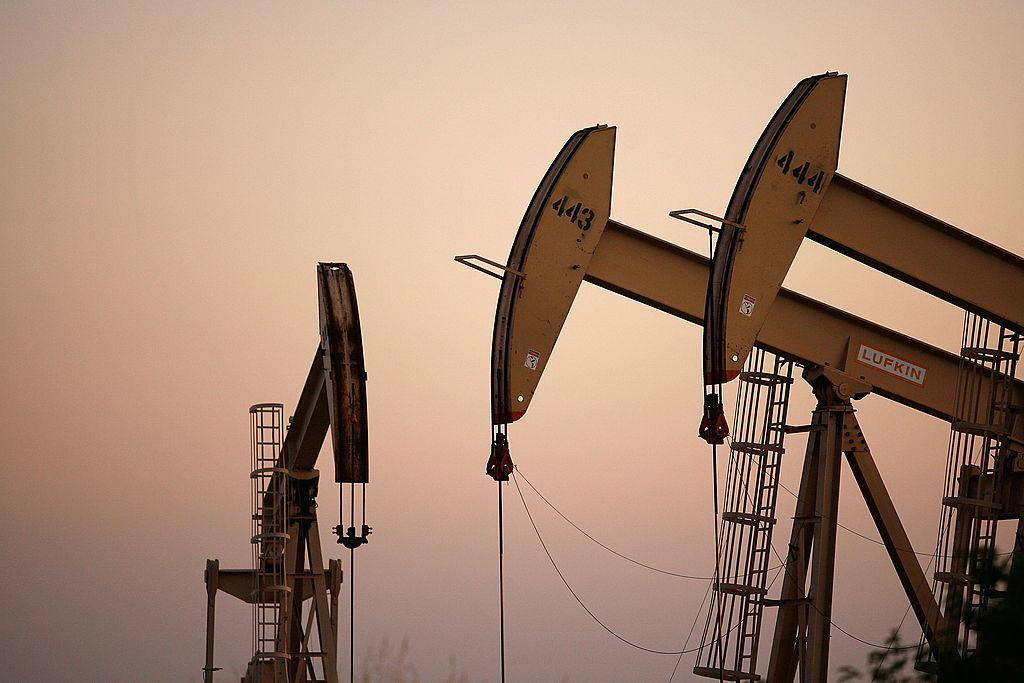The Supreme Court is hearing a case today that, if successful, could mean the end of new fossil fuel projects in the UK on climate grounds.
The justices will decide whether to reverse approval for oil extraction at Horse Hill based on downstream emissions from the use of the oil. Whatever the outcome, this case is a damning indictment of the UK’s absurd climate laws.
This is a long-running affair. Horse Hill was first test drilled in 2012 and permitted by Surrey County Council to expand to a commercial scale in 2019. This is the teeth of opposition from local campaigners, including the Weald Action Group, Friends of the Earth, and the litigant Sarah Finch.
The activists want to stop all domestic fossil fuel production, regardless of the harm this would do to our energy security and bills. To achieve this goal, they have been using judicial review, rooted in their interpretation of the Climate Act and a raft of complex planning, permitting and environmental protection laws, to delay and obstruct developments. They have been appealing and escalating at every turn. Consequently, four years into what should be a simple planning matter – to allow a legal business to expand – the case reaches the Supreme Court. No wonder the UK’s economic growth is anaemic.
The central legal point is whether Surrey County Council should have required the developer to report consumption (or Scope 3) emissions and test them against a retained EU Directive and the UK’s climate commitments. But this outcome would be absurd. Holding a producer to account for the downstream climate impact makes no sense.
In the first instance, an oil producer cannot accurately predict the future emissions profile of their product, which could be used anywhere in the world. It is highly dependent on ever-changing use cases and the pace of technological development (e.g. an oil producer 30 years ago would have failed to predict how much more fuel-efficient cars are today). These estimates may be of interest to climate nerds; but they are not relevant considerations for development, at least not in a country serious about its energy security.
In practice, we either drill here or rely on imports from allies like the USA, dodgy Opec regimes, or even Russian exports
More importantly, there is a large substitution effect. If we don’t get oil from Horse Hill, it will simply come from somewhere else and at a higher cost for consumers and the environment. Stopping Horse Hill would prove nothing more than a pyrrhic victory.
The UK is still 75 to 80 per cent dependent on fossil fuels for our power, heating, transport and industrial needs. Whatever happens to the pace of our future energy transition, we will remain dependent on oil and gas at least to some extent for at least 20 to 30 more years, and likely longer. Furthermore, cheap energy remains an essential feature of a thriving economy and, as we have discovered over the past year, a lack of energy has dire consequences for households and businesses.
In practice, we either drill here or rely on imports from allies like the USA, dodgy Opec regimes, or even Russian exports (filtered through third parties like China and India). These imports will be more expensive and environmentally damaging. For example, Liquid Natural Gas, which requires condensing, shipping and expanding, is 2 to 3 times riskier to the climate than home extraction.
It is self-evident that oil not drilled in Horse Hill will increase imports, with the near certainty of a higher emissions profile. It might feel nice for activists to export our emissions, but it does little good.
Blame for this mess lies less with the campaigners – bar their failure to understand trade-offs – than with the politicians creating laws that enable them to cripple the country’s energy supply. The creation of a legal target means subverting pragmatism to ideological purity. It hands the power to disruptive activists to delay genuine projects and ultimately to judges to make complex trade-offs. This reduces democratic accountability. Even when nakedly political cases fail, the risk of expensive and lengthy disputes creates a chilling effect on investment.
It may already be too late for oil and gas in the UK. The Conservatives and Labour are competing to introduce new obstacles to ‘dirty development’; from fracking bans onshore to development moratoriums offshore and random windfall taxes. They both talk about reforming planning rules to enable renewables, an unreliable alternative. But even here the pace is glacial and the detail scant, while the logic of general planning reform to get everything built faster escapes them.
If the campaigners win, however, the collapse of investment will be faster. The developers only won by a 2 to 1 margin at the earlier Court of Appeals stage. If your business can be shut down by activist judges, or neutral ones struggling to cope with laws so complex there is no clarity, there will be no business. The onus then falls on the politicians to understand and fix the mess that they have created. The alternative is more emissions, higher costs and greater risks of blackouts, freezeouts and queues at the pumps.






Comments